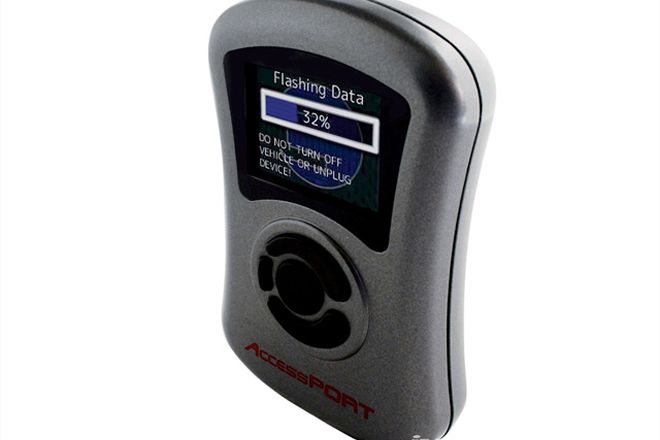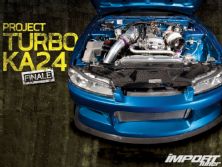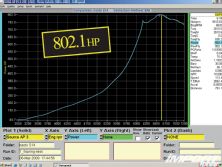Eric Hsu facts:
- Eric Hsu can start a car by looking at it. The car knows what'll happen if it doesn't start.
- Eric Hsu invented the Vuvuzela. Got a problem with that?
- Eric Hsu shoots 275/35-18 Hankook Z214s from his thumbs like rubber bands.
- Eric Hsu shaves his beard with a plasma cutter. It takes a full day.
- Eric Hsu could come up with better Eric Hsu facts. He just doesn't.
Send questions, problems, and sob stories to:
[email protected]
Ethanol Power
I own an '09 WRX with a turbo-back exhaust, intake, and Cobb Accessport-reflashed ECU, making 256 whp and 308 lb-ft of torque. I'm looking for advice on what my next move should be. I've read that running E85 with bigger injectors, an FMIC and turbo upgrade is the next step towards making additional power. Do you recommend investing in some internal engine upgrades to withstand the sudden power boost? I'm out of my league on this but am eager to learn. I want to make 400 whp safely.
-Code Name: Tom
US Army, Iraq
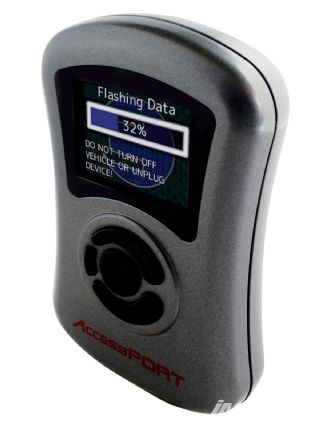 |
Ethanol Power, Suspension Tweaking, and More - Question It
|
Ethanol Power, Suspension Tweaking, and More - Question It
The EJ255/257B engines are known to have weak pistons from the factory, but piston damage usually occurs from detonation. Even if you changed the pistons with a set of forged pistons, proper tuning and parts selection are still required to prevent damage. HB Speed in Fountain Valley, CA, and Dyno Comp in Scottsdale, AZ, claim they have both built cars in excess of 400whp with stock pistons. I probably wouldn't do it myself, but both of these shops have good track records. Aside from proper engine tuning, running E85 with larger injectors and a front-mount intercooler (FMIC) are some of the best ways to combat detonation. Alcohol-based fuels like E85 can cool the intake air and reduce the chances of detonation. Another added benefit of E85 is it has an octane equivalent of 105 (R+M)/2. A front-mount intercooler is an absolute must in my opinion for any serious Subaru. It's a bad situation any time a heat exchanger like the Subaru intercooler sits on top of a massive heat source like its engines and turbos. One of the first things we learn in grade-school chemistry class is that heat rises. In addition, the '08 and newer GD Imprezas' hood scoops can actually cause a reverse in air flow at 130 mph, when the air pressure inside of the engine bay becomes too high-high pressure air flowing on the outside of the hood can actually draw air out of the engine bay through the hood scoop. This means that at over 130 mph, hot air from the engine is exiting through the top-mounted intercooler, turning it into an "interheater". While it is rare that you'll be going over 130mph, it sucks to know you're limited in efficient cooling and can end up with a set of melted pistons. A turbo upgrade is a must for the 400whp goal. No matter what parts you end up with, make sure you have your COBB Accessport professionally tuned for best results.
Suspension Tweaking
Can you recommend some books on the subject of chassis angle design (castor, camber, scrub radius, etc.) for real-world race and track car applications? I read the mags on a regular basis and understand that cars have evolved from early models into today's more advanced platforms, but I'm looking for more in-depth explanations of how it's done. I would especially like to learn more about proper track car setup and alignment.
-Chris
via importtuner.com
I've read dozens of books, tweaked plenty of suspensions, and worked alongside of, as well as asked, Mike Kojima of motoiq.com about 10,000 questions to learn what I know about suspensions today. I recommend Engineer to Win by Carroll Smith, which is easy and fun to read while still covering the subject in great detail; Competition Car Suspension: Design, Construction, Tuning by Allan Staniforth, which isn't quite as fun to read, but is very detailed; and Chassis Engineering, by Herb Adam, which I honestly don't remember much of, but is sitting on my bookshelf, so I must have read it years ago. Only if you read the books and then apply in real life what you learn will you be able to master the subject.
Electrical Gremlins
I'm planning to swap a K20A2 into my '99 Civic hatchback in a few weeks, but recently ran into problems with my stock motor losing power and suddenly shutting off while driving. I'll still have accessory power when this happens, but what's weird is that when I restart the motor, it fires up right away and runs smooth like nothing happened. It doesn't shake or struggle to idle correctly, so it doesn't seem like a typical mechanical issue. I've postponed my swap for fear of inheriting these problems in my K-series swap, if it's electrical. I've checked the air filter, fuses, ignition wires, spark plugs, cat, and changed my main relay, and I still have the same problem. What should I do?
-Kao Yang
via importtuner.com
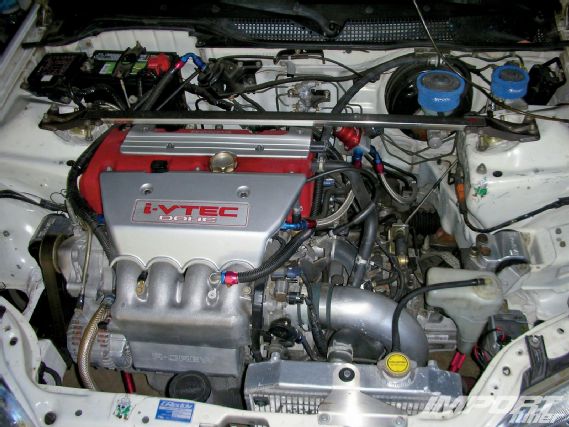 |
Ethanol Power, Suspension Tweaking, and More - Question It
|
Ethanol Power, Suspension Tweaking, and More - Question It
That was a wise decision to hold off on the swap until you figure out the problem. Get yourself a factory service manual and start diagnosing all the power and ground circuits related to the engine harness, battery, alternator, and ignition key cylinder. I've also seen main fuses (the big rectangular ones with the clear plastic on top) have intermittent connections that cause problems that sound like yours. Also, if there is excessive corrosion on the battery terminals you'll want to remove the corrosion, neutralize the acid with a baking soda and water (50/50) solution, clean the terminals, and reinstall them. It would suck for you to rip the car apart only to find it was a bad battery terminal connection. If none of these solutions do the job, you'll have to start diagnosing the engine, chassis, and power harnesses one wire at a time, which sucks big time.
Should I Stroke it? Do i need head?
I own a BNR34 Skyline GT-R and am currently deciding if the 2.8L stroker kit from Tomei is a good upgrade. I plan to road race, time-attack, and drag race the car but am curious as to how reliable this setup will be. Would I need headwork with it?
-Chris Fanchier
via importtuner.com
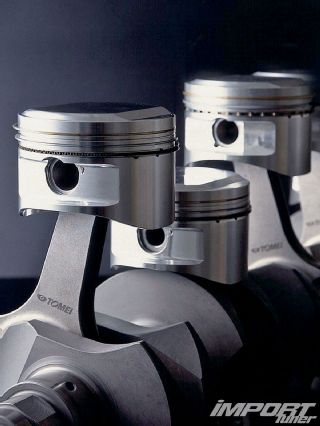 |
Ethanol Power, Suspension Tweaking, and More - Question It
|
Ethanol Power, Suspension Tweaking, and More - Question It
Tomei manufactures excellent parts for the RB26 engine. The Tomei 2.8L stroker kit comes with a forged crank, pistons, H-beam rods, and oil jet spacers with the options of choosing cooling forged pistons and/or titanium top coated rings for maximum performance and reliability. I used quite a few Tomei parts in my personal BNR32 GT-R. If you have the money, there's no replacement for displacement, and the Tomei crank eliminates the inherent harmonic imbalance of the stock RB26. Just make sure you hire an engine builder who has a lot of experience with the RB26. Your investment in the Tomei 2.8L stroker kit will go much further in horsepower and lifespan with an experienced RB26 builder.
D16A vs. B18C
I've been reading Import Tuner for two years now and finally decided to ask a question, hoping it gets answered. I am enlisting in the military and decided to buy an '00 Civic before I ship out. Problem is it has a D16 engine and is too slow. Can you recommend a better engine to swap into my ride? Other than the 1.8L DOHC engines with larger displacement, what are the other advantages? I am looking to make 400-450 hp. Which engine is more reliable and an overall better engine? My friend recommended the B18C1 engine and a used B16A tranny, but do you consider that a good suggestion or is he full of crap? Where would you recommend I get all the parts needed, including a turbo kit in the near future?
-Cisco
via importtuner.com
A B18C starts out life with 11.2 percent more displacement, a better flowing cylinder head, two cams, and is optimized for high-rpm power when compared to the D16 engines. For a 400-450hp B18C, you'll need to have an engine built with forged pistons, billet rods, and quality bearings. With a good ECU and tuning, you probably won't need iron sleeves, but a block guard of some kind would be good to have. A B16A's native transmission has shorter gears, and I'm not sure I would suggest that transmission for general purpose. The transmission and final drive gearing should be selected based on the type of driving or racing you plan on doing and your wheel and tire size combo. For example, if this is a street car that you drive 50 miles per day, there's no need for you to be cruising down the highway at 5,200 rpm at 80 mph with a B16A tranny when you could be cruising at 3,800 rpm at 80mph with a B18B tranny (these numbers are just examples). Aside from going deaf at 5,200 rpm, you'll go broke from the poor fuel mileage. For the turbo system parts, I'd call up Full-Race in Phoenix, AZ. They should also be able to get you the rest of what you'll need.
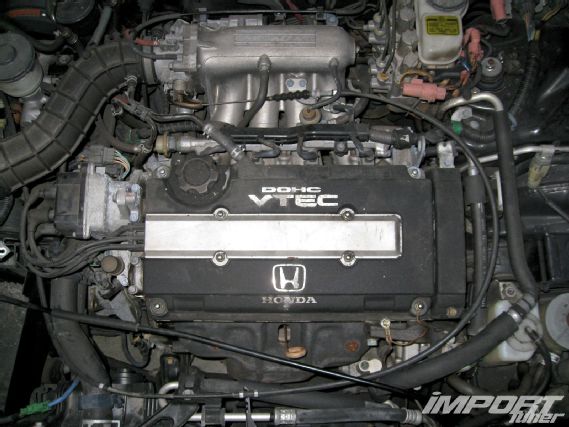 |
Ethanol Power, Suspension Tweaking, and More - Question It
|
Ethanol Power, Suspension Tweaking, and More - Question It
Horsepower Hungry
I currently own a '96 Nissan 240SX with plans of making some serious horsepower in the near future. Is it possible to get 800 hp with some good money put into the KA24DE, and if so where do I start?
-Eduardo Antonio
via importtuner.com
My buddy Naoto Negishi built his KA24DE to over 800 whp with a lot of hard work and money. And when I say a lot, I mean A LOT. The factory KA24 was completely redone from the ground up, using an HKS T51-R turbo and an internally built engine. The car was featured in Import Tuner between July '09 and January '10, and ultimately ended up making 802.1 whp. See if you can track down the backissues, or visit importtuner.com.

